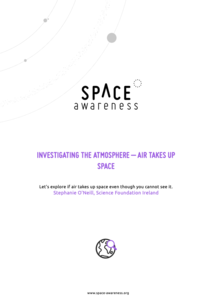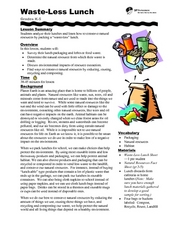Curated OER
Out and About: The Science of Sport
Students take a closer look at sports science. In this hands-on learning lesson plan, students may visit the Science Museum, the Life Science Centre, or the Wimbledon Lawn Tennis Museum online or in-person to discover details related to...
Curated OER
Life Cycles
Students explore the parts of a flower and pollination of flowers. In this plants lesson, students use an interactive whiteboard to label the parts of a plant and the functions of each part. Students complete a worksheet as an assessment.
PBS
The Butterfly or Adult
Now that your class knows about the life cycle of a butterfly, it's time to discuss how an adult butterfly survives in the wild. The class diagrams and labels the parts of a butterfly, discusses how butterflies survive, and then make a...
Curated OER
The Tiny Seed Lesson Plan Guide
Not only is this lesson about story retell, main events, and making predictions, it's also about plants. Youngsters will read the tale, The Tiny Seed as they explore the plant life cycle and early literacy skills. The lesson is very...
Space Awareness
Investigating the Atmosphere - Air Takes Up Space
How do you know there is air? Can you see it, smell it, feel it? To begin the investigation, learners watch a video and discuss what they know about air and the atmosphere. Then, they participate in five different hands-on, inquiry-based...
Rainforest Alliance
Protecting the Critical Habitat of the Manatee and Loggerhead Turtle
Explore ocean habitats with a lesson that showcases the home of manatees and loggerhead turtles in Belize. Here, pupils compare and contrast the homes of ocean animals to those of humans, listen to an original short story about...
Core Knowledge Foundation
A Time for All Seasons - Spring
Celebrate the arrival of spring with this fun primary grade science unit. Engaging young scientists with a variety of hands-on activities and inquiry-based investigations, these lessons are a great way to teach children about...
Curated OER
Lesson Plan for The Little Red Hen
Cultivate young performers while teaching them about helping one another with this interactive storytelling lesson. Elementary schoolers read or listen to the story The Little Red Hen by Mike Lockett and then act out the story while...
National Wildlife Federation
Call of the Wild: Grades K-4
The sound a frog makes lets people know what it's up to. A two-part lesson begins by discussing the life cycle of a frog and the individual stages with drawings. The second part has learners listen to the frogs' different sounds and what...
Wildwood Trust
Habitats
The circle of life is all around us, from the black bears in the nearby mountains to the pile of dead leaves in the backyard. Encourage young scientists to take a critical look at the world around them with a set of lessons...
SF Environment
Waste-Less Lunch
Is it possible to have a waste-less lunch? Can your class become leaders in conservation? Discuss the importance of reducing waste during lunch time with a fun instructional activity that can be extended to everyday practices. First the...
Curated OER
Lesson Plan for Cricket's Supper
Interested in a special folktale to read with your class? Then this lesson might be for you. Readers will build an understanding of the food chain while creating a storyboard that includes the characters, setting, and plot of the story....
Purdue University
Reptiles, Amphibians, and the Scientific Method
What do a reptile and an amphibian have in common? A three-part lesson allows scholars to investigate the similarities and differences between the two types of animals by identifying specific body parts. The lesson highlights the...
National Wildlife Federation
Night Friends - American Bats
Bats are a misunderstood species. Pupils learn about the characteristics of bats in a three-part lesson. They begin by examining the adaptations of different types of bats, then explore the misconceptions humans have about the species....
Alabama Wildlife Federation
Bloomin' Butterflies
Get an up close and personal look at the metamorphosis of the butterfly. Pupils take ownership of their learning by collecting butterfly eggs, building a cage, and raising them to adulthood. The lesson resource provides instructions for...
Curated OER
Fish Fashion 101
Students explore fish anatomy. In this fish anatomy and adaptation lesson, students define and identify the location of fish body parts. Students add these parts of a fish's anatomy to a life-sized fish costume worn by a student. ...
Curated OER
Life Cycle of a Butterfly
Students complete a variety of exercises involving butterflies and their life cycle.
Curated OER
Frog Life Cycle
First graders complete various drill and practice activities designed to reinforce the concept of the 4 steps in a frog's life cycle. Internet research, picture charts, sequencing cards, etc. are used. They draw the steps in a paint...
Curated OER
"Lettuce" Learn About the Water Cycle
Young scientists investigate the water cycle through a lettuce seed experiment. For this experiment, learners plant lettuce seeds inside of a ziplock bag in order to create a small greenhouse. They observe condensation and precipitation,...
Curated OER
Classifying Plants and Insects
Art and science come together in a lesson based on Flower Still Life by Ambrosius Bosschaert the Elder. Learners classify plants and insects in the painting by color, leaf shape, size, reproduction, and season of bloom.
Curated OER
The Life Cycle of the Butterfly
First graders, after listening to fictional and non-fictional literature about caterpillars, and observing caterpillars from egg to butterfly, write a "biography" of a caterpillar using appropriate vocabulary and time lines.
Curated OER
The Spider's Life Cycle
Students see that spiders have a life cycle, and reproduce by laying many eggs. We can count by ones, twos, fives, or as many as we want. They make two lists of animals on a chart.
Curated OER
What is Soil?
Learners examine soil. In this earth science activity, students define and describe weathering and erosion as it relates to soil. Learners compare and contrast potting soil with forest soil and complete a science observation worksheet.
Alabama Learning Exchange
Making and Observing Life in a Terrarium
Young scholars understand the parts of the terrarium and why they are important in establishing an ecosystem. In this ecosystem lesson, students recall background information on aquariums, terrariums and the water cycle. Young scholars...























